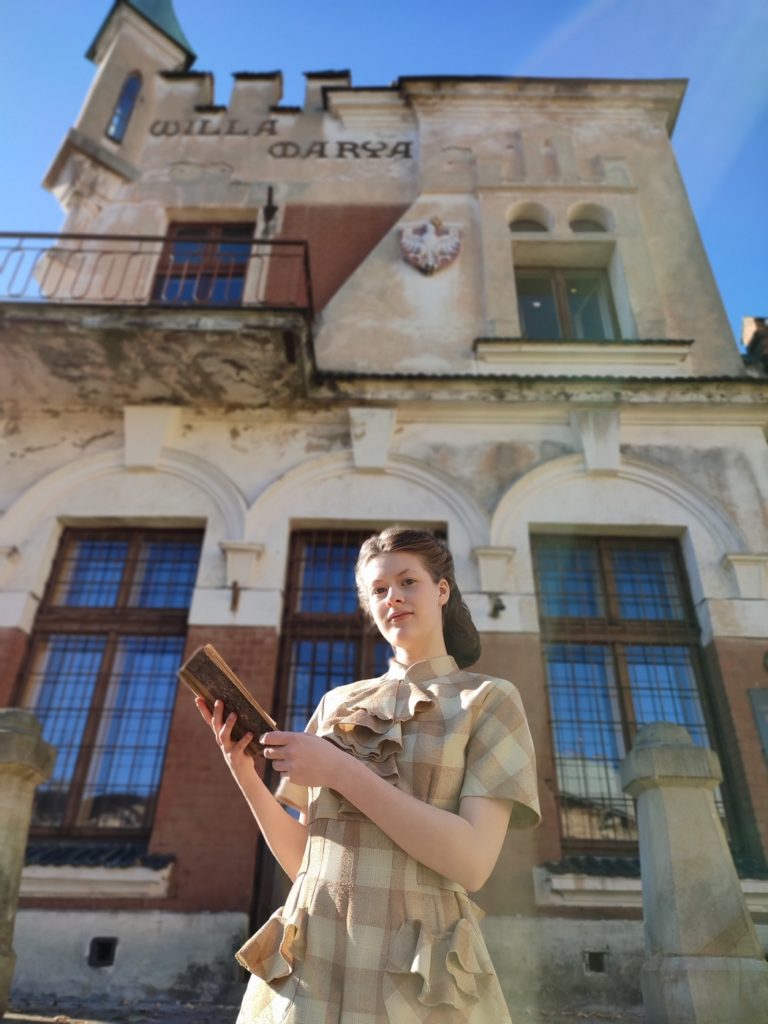Short conversation with Irena Michalska, playing the part of Helena Barbacka

You are a very young artist, but in the “War-time Triptych”, because of its themes, you have faced a difficult task – was “Helena” the first time for you, to face the subject of occupation?
The occupation is a subject very often mentioned in my home. My family was in a very hard situation during the war. My great-grandfather was a war prisoner of the Germans and spent the entire war in the Woldenberg Oflag. My grandmother Irena, with her mother and siblings, was therefore forced to flee and during the war she witnessed very tragic events. Fortunately, after the war, all of them were able to happily rejoin. During his stay in the Oflag, my grandmother’s father would secretly write stories, journals and poems, some of them were even published later, and others are still waiting to be printed.
Are you emotionally connected with your character? Was she the most interesting for you? Do you admire her in any way?
Helena Barbacka became very close to me. I am similar age, I have a lot of dreams, and I can not imagine how I would behave in her situation. A young girl who had to leave her peaceful home and big plans to study journalism, and joined the partisans to fight for freedom. Mostly I admire her for the fact that despite the difficulties she had encountered on her path, Helena was able to fight for her own happiness. Although the war had taken so much away from her, she has found love. The feeling that was born between them was all the more powerful, as they could have died at any time. It is amazing how much hope there has been in it. Most importantly, I know well the daughter of Helena, Mrs Monika Ślepiak, whom I met at the Bolesław Barbacki Worker’s Theatre, we starred together in the play “Bolek and Żabusia”, and that made playing her mother a huge challenge for me. I hope I have met this challenge.
You have recently graduated high school and enrolled at the university, so you have a very fresh perspective as a student who needs to master the history material. Do you think that the subject of the occupation of Poland is still relevant, although it has been so many years since the II World War? Should it be taught and how to do it to make it engaging for the young people?
“A nation that does not know its history is condemned to experience it again” said George Santayana and his words should guide us, the young, especially today. Many years may have passed since the II World War, but that nightmare has affected and will still affect generations. Katyn, the Nazi occupation, Volhynia, Yalta and many other historic moments can still envoke hatred, xenophobia, but also patriotism and courage in the face of injustice, generosity and protest against unfairness. That is why we must talk about the occupation period, and it must be done especially now, when the new bloody war is waged near our borders. How? That is a more difficult question. Vividly, emotionally, but factually, without distorting the facts and, most importantly, with integrity. I have experience in the late medieval historic reenactment, because together with my parents I have been involved as a volunteer many times in living history lessons and shows. I have seen that such a way to convey knowledge appeals more to the young people, sparks their imagination more and stimulates them to study on their own.

